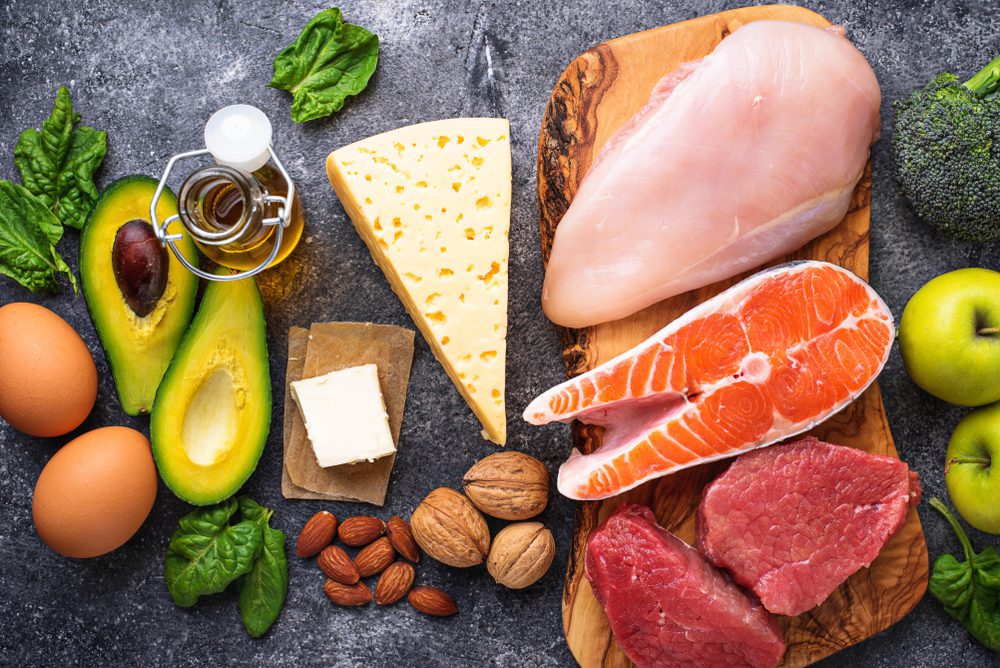The battle against cancer requires a multifaceted approach, and while medical screenings and treatments often dominate the conversation, nutrition emerges as a powerful yet frequently underutilized tool for risk reduction. This proves especially crucial for the Black community, which faces disproportionately higher rates of certain cancers and related metabolic conditions.
Recent research continues reinforcing the critical role dietary choices play in both cancer prevention and outcomes after diagnosis. Findings published in major medical journals consistently demonstrate that nutrition ranks among the most influential lifestyle factors affecting cancer development, alongside physical activity and tobacco use.
The connection between diet and cancer risk operates through multiple pathways. Certain foods contain protective compounds that reduce cellular damage and inflammation, while others may promote conditions that increase vulnerability to cancer development. Additionally, nutrition directly influences other risk factors like obesity, diabetes, and chronic inflammation that create fertile environments for cancer growth.
Understanding this powerful relationship allows for proactive protection strategies built around informed food choices. By approaching nutrition as a form of self-care rather than mere sustenance, individuals gain agency in their health journey beyond regular medical check-ups.
Finding the right nutrition guidance
The nutrition field encompasses various professionals with significantly different credentials, approaches, and areas of expertise. Understanding these distinctions helps identify the appropriate guidance for specific health concerns, particularly when addressing serious conditions like cancer risk.
Registered dietitians represent the gold standard for medical nutrition therapy, having completed extensive education including bachelor’s degrees, supervised practice programs, national board examinations, and continuing education requirements. Their training equips them to translate complex nutritional science into practical recommendations tailored to individual health conditions, including cancer prevention strategies and support during treatment.
Nutritionists, by contrast, may have varying levels of training, as the term lacks consistent regulatory requirements across states. While many nutritionists provide valuable wellness guidance, those seeking support for medical conditions like cancer risk management benefit most from working with credentialed professionals like registered dietitians who understand the nuanced interactions between nutrition and disease processes.
When addressing cancer prevention specifically, specialized oncology dietitians offer expertise in evidence-based nutritional approaches both before and after diagnosis. These professionals understand how dietary needs evolve throughout the cancer continuum from prevention through treatment and survivorship.
For Black Americans navigating nutritional guidance, cultural competence becomes an essential consideration when selecting nutrition professionals. Providers who understand cultural food traditions, cooking methods, eating patterns, and the historical context of food access create more effective and sustainable nutrition plans that respect heritage while enhancing health.
The cultural context of nutrition
Effective nutrition guidance acknowledges the deep cultural significance of food beyond mere calories and nutrients. Food represents heritage, comfort, celebration, and community—dimensions that must be respected rather than dismissed when making dietary modifications.
Traditional foods within Black cuisine often contain nutritional powerhouses that align perfectly with cancer-fighting dietary patterns. Leafy greens like collards, mustards, and turnip greens provide exceptional sources of folate, carotenoids, and fiber with demonstrated cancer-protective properties. Sweet potatoes deliver beta-carotene and anthocyanins that support immune function and reduce oxidative damage. Beans, peas, and legumes frequently featured in traditional dishes provide plant protein and fiber that help maintain healthy hormone levels linked to reduced cancer risk.
Rather than wholesale abandonment of cultural food traditions, effective nutrition guidance involves strategic modifications that preserve cultural connections while enhancing health benefits. This might include adjusting cooking methods, moderating portion sizes of higher-risk ingredients, or increasing the proportion of protective elements within traditional recipes.
Food access issues also require acknowledgment within this cultural context. Many Black communities exist within food environments dominated by convenience stores and fast food, with limited access to affordable fresh produce and whole foods. Effective nutrition guidance addresses these structural realities rather than offering impractical recommendations disconnected from lived experience.
By honoring the cultural dimensions of food while incorporating evidence-based modifications, nutrition plans become both more effective and sustainable. This balanced approach respects heritage as a valuable resource rather than an obstacle to improved health.
Diet patterns that reduce cancer risk
Research consistently demonstrates that overall dietary patterns influence cancer risk more significantly than isolated nutrients or single foods. Several evidence-supported eating approaches show particular promise for cancer prevention.
Plant-forward eating patterns—whether Mediterranean, DASH, or other traditional plant-rich approaches—consistently demonstrate protective effects against various cancer types. These patterns emphasize abundant vegetables, fruits, whole grains, and legumes while moderating animal products. The protective effects stem from multiple mechanisms: increased fiber that regulates hormone levels and supports gut health; phytonutrients with anti-inflammatory and antioxidant properties; and naturally reduced levels of compounds in processed meats associated with increased cancer risk.
The timing and frequency of eating also influences cancer risk beyond specific food choices. Emerging research suggests benefits to approaches like time-restricted eating that allow longer overnight fasting periods. These eating patterns appear to improve cellular repair mechanisms and regulate metabolic factors linked to cancer development. Similarly, consistent meal timing that works with rather than against natural circadian rhythms supports optimal metabolic health.
Portion awareness represents another crucial dimension of cancer-protective eating. While highly nutritious foods provide protection, excessive calories from any source can promote weight gain associated with increased cancer risk. Developing comfortable fullness awareness, using appropriate plate sizes, and understanding standard portions helps maintain energy balance.
Beverage choices significantly impact cancer risk profiles, with strong evidence linking alcohol consumption to multiple cancer types including breast, colorectal, and liver cancers. Even moderate alcohol intake increases risk, with the relationship strengthening as consumption rises. Sugar-sweetened beverages also raise concern through their contribution to excess weight and metabolic disruption associated with cancer development.
Food preparation methods influence cancer risk beyond the ingredients themselves. High-temperature cooking methods like grilling, broiling, and frying can create compounds that damage cellular DNA, particularly when applied to animal proteins. Modified cooking approaches like marinating before grilling, avoiding charring, and using lower-temperature methods more frequently help minimize these compounds while preserving flavor.
Addressing common barriers to nutritional change
Achieving lasting dietary improvements requires acknowledging and addressing the realistic challenges people face when modifying established eating patterns.
Budget constraints represent a frequent concern, particularly given the perception that healthy eating necessarily costs more. Practical strategies include focusing on affordable nutritional powerhouses like conventional produce, frozen vegetables and fruits, bulk whole grains, and dried beans. Strategic shopping approaches like meal planning before shopping, purchasing seasonal produce, and preparing foods from basic ingredients rather than convenience forms significantly enhance nutrition quality while respecting financial limitations.
Time pressures create another substantial barrier to nutrition improvement. Simple preparation techniques like batch cooking, strategic use of kitchen equipment like slow cookers or pressure cookers, and developing a repertoire of nutritious 15-minute meal options help overcome this challenge. Identifying grab-and-go options for busy days prevents defaulting to less nutritious convenience foods during hectic periods.
Taste preferences developed over decades naturally create resistance to dietary changes. Gradual transitions prove more successful than abrupt overhauls, allowing taste buds to adjust over weeks rather than expecting immediate acceptance. Simple techniques like pairing new foods with familiar flavors, experimenting with herbs and spices rather than salt for flavor enhancement, and involving all household members in food decisions increases acceptance of nutrition improvements.
Family dynamics frequently complicate nutrition changes when different household members hold varying nutrition priorities. Strategies like focusing initially on additions rather than restrictions, gradually modifying family favorites to enhance nutrition while maintaining familiarity, and involving all members in food decisions creates broader support for dietary improvements.
Emotional eating patterns require compassionate acknowledgment rather than judgment or shame. Developing alternative coping strategies for stress, boredom, or other emotional triggers, while maintaining flexibility rather than rigid food rules, creates more sustainable improvements without triggering counterproductive restriction-binge cycles.
Resources to support nutrition improvements
Beyond individual healthcare providers, numerous resources support nutritional improvement specific to cancer risk reduction.
Community-based nutrition education programs offered through public health departments, cooperative extension offices, and faith-based organizations provide accessible guidance matching local needs and resources. These programs often incorporate cultural context while delivering evidence-based information in engaging formats.
Digital resources including reputable websites from national organizations provide scientific guidance filtered through user-friendly interfaces. The Academy of Nutrition and Dietetics, American Institute for Cancer Research, and American Cancer Society offer specialized content addressing the nutrition-cancer connection with practical implementation strategies.
Government resources like MyPlate from the USDA provide foundational nutrition frameworks adaptable to various cultural food traditions and health needs. These resources typically include interactive tools for meal planning, shopping guidance, and recipe modifications supporting cancer prevention goals.
Mobile applications focused on nutrition improvement offer convenience and accountability. Apps supporting meal planning, grocery shopping, portion visualization, and behavior tracking help translate nutrition knowledge into consistent action supporting cancer risk reduction.
Local farmers markets, community gardens, and food co-ops enhance access to fresh, affordable produce while supporting community connections. Many such programs accept SNAP benefits and offer matching programs that stretch food dollars while maximizing nutritional quality.
Taking the first steps toward protective nutrition
Implementing cancer-protective eating patterns works best as a gradual, sustainable process rather than a dramatic overhaul. Several specific starting points offer accessible entry into nutrition improvement.
Increasing vegetable and fruit consumption represents one of the most consistently supported cancer-protective strategies. Starting with adding one additional serving daily, then gradually building toward filling half your plate with these foods at most meals creates substantial protection. Focusing on variety through different colors ensures diverse phytonutrients with complementary cancer-fighting properties.
Exploring plant proteins like beans, lentils, and tofu provides another evidence-based starting point. Beginning with one meatless meal weekly, then gradually increasing plant-protein frequency helps reduce processed meat intake associated with colorectal cancer risk while increasing fiber that helps eliminate excess hormones linked to reproductive cancers.
Transitioning toward whole grains by replacing refined versions with intact alternatives like brown rice, quinoa, farro, or whole wheat delivers more fiber, antioxidants, and anti-inflammatory compounds. Starting with breakfast choices offers an accessible entry point before expanding to other meals.
Moderating alcohol consumption significantly reduces risk for several cancer types. Establishing alcohol-free days, diluting drinks with sparkling water, or substituting naturally flavored beverages without alcohol helps reduce overall consumption without creating social discomfort.
Developing cooking skills through community classes, online videos, or cookbook exploration empowers lasting nutritional improvement. Mastering simple techniques for vegetable preparation, learning flavor-building methods beyond excessive salt or sugar, and building a repertoire of quick nutritious meals supports sustainable cancer-protective eating patterns.
The journey toward cancer-protective nutrition ultimately requires personalization that respects individual health needs, cultural values, and practical life circumstances. Working with knowledgeable professionals while drawing on community resources creates a supportive environment for these important changes. Through informed nutritional choices, members of the Black community gain a powerful tool for reducing cancer risk while enhancing overall health and wellbeing.

















